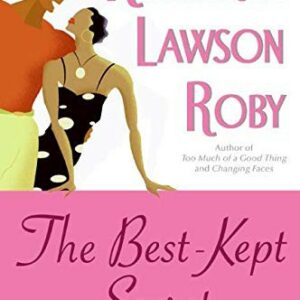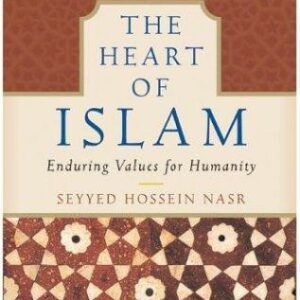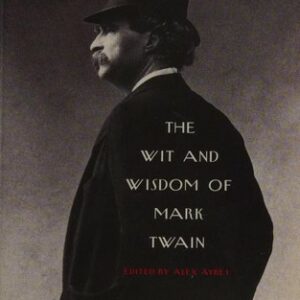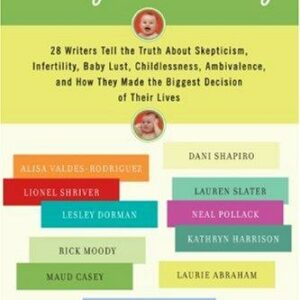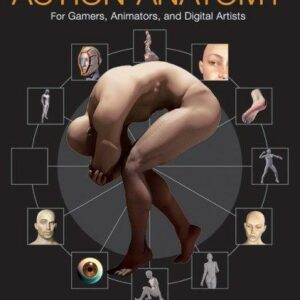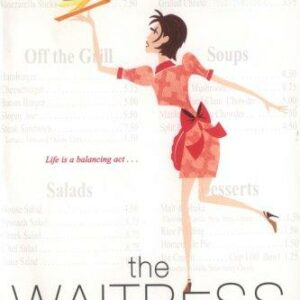A Fading Sun
$7.99
| Title | Range | Discount |
|---|---|---|
| Trade Discount | 5 + | 25% |
- Description
- Additional information
Description
In this new paranormal fantasy series, a powerful woman who can see the dead must choose whether to forge a new path for herself and her family….
“The problem with ghosts is that they don’t quite realize that they’re dead.”
Voada Paorach can see the dead. It is a family trait, but one that has had to remain hidden since the Mundoan Empire conquered her people’s land three generations ago. But this ghost isn’t the same as the others she has glimpsed, the lost souls she has helped to find their way to the land beyond life. This ghost demands that Voada follow a new path, one that will mean leaving behind everything and everyone she has known and loved.
Voada will come to understand the power that her people possess, but she will also learn the steep price that must be paid for such a gift.
Fast-moving and intense, A Fading Sun explores grief, sacrifice, ambition, and the forging of personality in the crucible of war.Praise for A Fading Sun:
“Leigh’s complex and substantial fantasy series opener adds elaborate spellcasting and powerful sorcerers to the legend of Celtic warrior queen Boudica repelling the Romans…. Leigh skillfully weaves together a comprehensive and rich mythology, intricate fight sequences, and a mother’s all-consuming revenge.” —Publishers Weekly
“Readers, who will detect a resemblance to Ireland, Scotland, and England during the Roman era, will eagerly anticipate the sequel.” —Booklist
“Leigh builds a vivid, thrilling and exciting new world that will captivate and hold the imagination in A Fading Sun.” —RT Reviews
“Stephen Leigh’s A Fading Sun is another powerful entry in the category of stories about the change wrought by empires—for better or worse.” —Barnes & Noble Sci-fi & Fantasy BlogStephen Leigh is a Cincinnati-based, award-winning author with nineteen science fiction novels and over forty short stories published. He has been a frequent contributor to the Hugo-nominated shared world series Wild Cards, edited by George R. R. Martin. He teaches creative writing at Northern Kentucky University. Stephen Leigh has written Immortal Muse, The Crow of Connemara, and the fantasy trilogy Assassin’s Dawn. He can be found at farrelworlds.com.
1
The Wraith in the Shadows
The problem with ghosts is that they don’t quite realize they’re dead.
Voada entered the Temple of Pashtuk, glaring at the muddy tracks of feet on the stone flags, and it was then that she realized she wasn’t alone. The ceramic bust of Emperor Pashtuk was illuminated by the sun slanting down from the open roof above the altar in the middle of the room. The pair of east-facing open windows also allowed in shafts of dust-speckled light, creating heavy shadows around the remainder of the circular room.
Once, the temple had been dedicated not to Emperor Pashtuk but to Elia.
Voada noticed the ghost—that her own people, the Cateni, would call a taibhse—as a shimmering, nearly transparent presence in the shadows; when it passed through sunlight, the apparition vanished entirely. It paced the room’s perimeter, as if it could not bear to keep still. But this one…it was entirely unlike any taibhse Voada had ever seen before. Voada first thought the wraith a woman, though the face shifted and changed in the light and sometimes seemed male. All the ghosts she’d seen before had looked like the people whose bodies they’d inhabited before death. But this one…It seemed to be not one soul but many.
And before, Voada had always been able to hear the taibhse’s voice as well, but not with this one. Its eyes were always on Voada, and its mouth moved as if it were trying to speak to her. Voada almost imagined that she could hear sibilant words, but that might have been the wind that tossed the leaves outside the temple. Voada set down the heavy wooden bucket of water and rags with a grateful sigh as water sloshed over the leather of her boots. She rubbed at her back to ease the kink there, the ache that had been present ever since the birth of her second child, her son, a decade ago now.
When the ghost passed near her, Voada reached out to it and felt a winter cold as her hand passed through its body. The ghost stared at her, its features dim and difficult to read. “Who are you?” Voada asked the ghost. “I’ve helped others trapped like you before. How can I help you?”
The creature only gave a doleful shake of its head and continued pacing the room.
The temple had been built by Cateni two centuries ago for Elia, the goddess whose visage was the sun. Voada’s great-grandparents and their family had served Elia as draoi: those who could wield the magic of Elia and the sun-paths that coalesced here in the building, if the old tales could be believed. They’d also been menach, the clerics of Elia. The sun-paths were still marked on the floor: pale tiles set against the darker marble in two diagonal lines that crossed where the altar sat and ended at the four great windows that framed the solstice suns at dawn and sunset.
But those days were dust and legend since the arrival of the Mundoa, and the statue of Elia that had once graced the altar had been hidden by Voada’s grandparents because they knew that the Mundoa would simply smash the figure and melt down its golden crown. Voada knew where Elia’s statue was buried; her grandparents had told her mother, and she had told Voada.
To Voada, this was still as much Elia’s temple as Pashtuk’s, despite Emperor Pashtuk’s dour and serious image replacing that of Elia. Voada had to admit that the Mundoan sculptors were superior to those of the Cateni. One could almost imagine Pashtuk’s eyes blinking or his mouth opening, but for now he only stared blindly at Voada and the ghost.
“I can show you the sun-path,” Voada said to the taibhse, pitching her voice so that it echoed in the round chamber, shimmering as the words rebounded from the curve of the roof. “You can still find it. I’ve shown others.”
The ghost seemed to wail silently at that, its mouth open in an “O” that mimicked the central opening in the temple’s roof, and Voada saw its head shake violently. It pointed emphatically northward, not to the solstice windows or the sun-paths that led to the plane of the Cateni gods when this had been Elia’s place of worship.
The absent gods, now. The forgotten gods, for most. The forbidden gods.
“I don’t know what you want if you won’t follow the sun-path,” Voada said. “I wish I could talk to you. I wish you could hear me. Perhaps my seanmhair Ailis could have done that. She knew the spells…”
In answer, the ghost pointed northward again, imperiously, then continued its pacing. Voada watched it, then sighed. She knelt down alongside the bucket of water and wrung out one of the rags. She began scrubbing the stone flags around the altar, marveling at the hollows worn into the golden-brown stones by generations of feet. The ghost watched her, still restless.
When Voada had finished her task a few candle-stripes later, she put the rags back in the twice-refilled bucket and stood, groaning and rubbing at her knees. The ghost had stopped and was standing directly in front of her. Voada could see the temple doors through its body, as if she were peering through a thin morning fog. The features hovering in front of her remained indistinct and genderless. “I’m leaving now,” she told it. “I’m sorry. I wish you would let me help you.”
Once more, the ghost lifted a pale arm and pointed northward. Voada hefted the bucket; as she did so, she saw movement at the door, blurred by the ghost. “Voada?” a deep voice called.
“Meir,” she answered. “Sorry. I was just getting ready to leave.” She took a step toward her husband, shivering as she passed near the ghost’s frigid presence. Older than she was by decades, Meir’s hair was now largely silver-white with his scalp gleaming through the thin strands at the top and back of his head. His breathing after climbing the hill to the temple was harsh and loud, as it was too often lately whenever he exerted himself. Even a short walk seemed to exhaust him now.
Meir wore Mundoan clothing: loose pantaloons and a vest dyed the rich blue of an administrator, as befitted his role as the Hand of Pencraig, with a simple white linen tunic underneath. Voada noticed that the servants hadn’t properly polished his boots that morning—there were still traces of mud from yesterday’s rain. Voada was wearing clothing that her grandparents would have found familiar, in the style of the Cateni who were both her and Meir’s people—a chiton (which the Mundoa scoffingly called a “bog dress”) and a woolen wrap in brown-and-ivory plaid, embroidered with elegant, brightly colored knot work around the neck and hem, belted and pinned around her body. Her long, reddish-brown hair was wound into intricate braids, the end of each held by a small gilded ball.
The thought of how they looked together, so vastly different, amused Voada suddenly. She gave Meir a smile, then peered back into the room toward the ghost.
“Thank you for cleaning the temple for tomorrow,” Meir said. He was still breathing heavily, leaning over and bracing himself against the railing around the altar. In the heavily shadowed temple, his blue eyes seemed more gray to Voada. “I’ll send Orla up to the Voice’s estate. That way, Voice-wife Dilara will know she can have her slaves bring in the flowers and decorations for Emperor Pashtuk’s birthday celebration tomorrow. Since we’re also celebrating his twentieth year on the throne, it’ll be a special ceremony. You did well.”
Voada shook her head slightly at her husband’s misunderstanding. She watched the ghost, which had resumed pacing: glinting in the shadows, lost in the sun…“I didn’t do it to impress Voice-wife Dilara,” she said. “I only thought Elia deserved a clean home, and the temple was getting filthy. The Voice-wife doesn’t have her people take care of this place as she should.”
“This isn’t Elia’s temple,” he reminded her. “It hasn’t been now for three generations.”
“Really?” Voada answered gently. It was an old argument between them, their lines as deeply worn as a rutted road so that they didn’t even have to speak them now. Instead, she watched the ghost moving in and out of the light.
“What are you looking at?” Meir asked, still leaning on the railing. “Is there…?”
“Yes,” she told him.
“I don’t see anything.”
“I know. But that doesn’t mean it’s not there. I can see it.”
“Can you make this one go away like the others?”
“I tried to show it the sun-path, but it ignored me.”
Meir gave a grunt as he pushed himself upright, and Voada knew that meant the conversation was over. She hefted the bucket and turned. “Come on,” she said to Meir, taking his arm. “Let’s go home.”
The temple stood at the summit of a hill: Pencraig Bluff. Voada and Meir could see the town spreading out below them, looking as if it had mushroomed from the lush greenery. Pencraig, the village, stretched out along the shallow slope, overlooking the River Yarrow and a small dock extending out into the shallow brown water. A few boats were tied up there, and Voada could see the bustling of workers offloading supplies into the warehouses on the bank and others loading sheep, timber, and produce— Pencraig’s usual exports—onto the barges for transport to larger towns and cities upriver. Smears of thin gray smoke from hearth fires drifted above several of the buildings, pushed sideways in the breeze and bringing the smell of burning wood and peat to Voada and Meir. To either side, in the pastures, they could see sheep grazing and hear their bleating calls. The percussive, rhythmic ring of a hammer on hot metal came from the blacksmith’s shop, halfway down the hill.
The lowest and poorest houses, just past the river dock, bordered a fast and cold stream that led down into the marshes at the meandering river’s edges, while a single lane of increasingly larger dwellings ascended the slope to the temple. The houses were a mixture of round, thatch-roofed, Cateni-style buildings—usually farther down the slope—and the newer rectilinear and distinctive Mundoan style faced with polished, gleaming stone.
The latter were poised high above the valley and just below the temple so that anyone looking up from the river or the road the Mundoa had built would see them: resplendent, polished jewels glistening in the sun and nestled in the verdant landscape. Those estates, with few exceptions, were occupied by those of Mundoan blood who had come to settle on Cateni land, almost all of whom were connected with the Mundoan administration or military.
The lane here was stone-paved, though Voada remembered that in her childhood it had been only packed and rutted dirt; in the Spring rains, it would send muddy rivulets rushing down the hill to pool against the raised stone thresholds of the houses lower down or join the water thrashing against the rocks of Pencraig Stream. The Mundoa seemed to have an aversion to muddy feet and the earth. Voada had heard tales that on the mainland across the Barrier Sea, the main roads leading to the Mundoan capital were decorated with brightly colored tiles and were so smoothly paved, straight, and flat that one could roll a ball down each and it wouldn’t stop until it reached the far ocean.
She dismissed those tales as stories meant mostly to impress the listener with the teller’s wide travels and importance. The roads the Mundoa built here were, she would admit, a modest improvement over Pencraig’s lanes of her youth. But her mother and grandmother had told her about the roads of the northern Cateni sun-paths, which—at least according to them—had once been superior to even those mythical Mundoan roads.
“Hand Paorach,” she heard someone call as they walked slowly down the hill, Voada holding Meir’s arm. They both turned to see Voice-wife Dilara standing at the gated entrance to the Voice’s estate, the courtyard green and cool behind her with simply clad Cateni slaves washing the flagstones and pruning the garden around the fountain. “Hand-wife,” she said, with a bare nod toward Voada before turning back to Meir. “You were just at the temple?”
“Yes,” Meir answered, “and Voada has cleaned it for the ceremony tomorrow. We were going to send our daughter to let you know.” Voada noticed that Meir carefully said nothing about the ghost she’d seen there. It wouldn’t do to remind the Voice-wife of Cateni superstitions, especially when they weren’t visible to her.
Dilara lifted her chin. She was a dour woman, thin as a marsh reed and as brittle. Birthing nine children had left her haggard and gray-haired, despite the numerous slaves the Voice owned to run the household and care for their brood. Both Voice Maki Kadir and Voice-wife Dilara were Mundoan, speaking with the nasal accent of the mainland. Dilara was dressed in Mundoan finery, a long dress dyed a blue so intense it made Voada’s eyes burn, richly embroidered with golden threads at the hem and neckline, with a stole of expensive white linen over it. Gold-set jewels gleamed at her throat and in her hair, and her fingers were adorned with rings.
“You did that drudgery yourself, Hand-wife?” she asked, her eyes narrowing as heavy lines creased the corners. Her eyes were the dark brown of sweetnut shells, and she glanced at the bucket and rags Voada was carrying. “That’s servants’ work. Why, I was intending to send some of household slaves to the temple later today.”
“I wanted to do it myself, Voice-wife,” Voada answered. “Our temple deserves the touch of someone who honors its history, not just someone who’s following her mistress’ command.”
Dilara’s eyes narrowed further, as if she were turning over Voada’s words to see if there was something unpleasant buried in them. “Then I must thank you, Hand-wife,” she said finally. “It’s good that at least some of the Cateni understand their roles, as do you and Hand Paorach.” She glanced back into the courtyard, where her slaves were working. “You!” she shouted at one. “Look at the mess you’re making. Be more careful, or you’ll find yourself cleaning the midden.” With that, Dilara turned back to them. “We’ll see you tomorrow at the ceremony?”
“Of course,” Meir answered her. “We’re looking forward to it. Aren’t we, Voada?”
Voada forced a smile onto reluctant lips and nodded to the Voice-wife. “We certainly are.”
Dilara’s sour expression didn’t change. “We’ll see you then. The Voice and Hand must show the rabble the importance of the emperor and how we’re proud and united behind him. Without Emperor Pashtuk and us Mundoa, the island of Albann would still be nothing but an uncivilized wilderness.”
With that, Dilara took her leave, going back into the courtyard to scold those working there, and Voada and Meir continued walking down the lane. “I’m sorry,” Meir said when they were out of earshot of the Voice’s estate. “She doesn’t think about who might be hurt by what she says. I’ve known other Mundoa in other cities; not all of them think as she does.”
“It’s fine,” Voada answered. “The Voice-wife is only saying what she’s been taught.” Still, part of her wanted to rage and rant. Uncivilized wilderness? We Cateni had cities and temples everywhere in Albann before the Mundoa ever came here. We had our own ways, and they were good. Why, the tales my grandmother told me before she died…But no, saying any of that would only start the old arguments again. Meir might not like the Mundoa, but as the Hand, he was simply another one of the overlords to most of the Cateni.
And therefore, as his wife, so was Voada.
US
Additional information
| Weight | 6 oz |
|---|---|
| Dimensions | 0.9300 × 4.1900 × 6.7500 in |
| Series | |
| Imprint | |
| Format | |
| ISBN-13 | |
| ISBN-10 | |
| Author | |
| Audience | |
| BISAC | |
| Subjects | A Fading Sun, fiction books, books fiction, fantasy book, fantasy novels, roman britain, paranormal fantasy, Lost souls, magic powers, Stephen Leigh, folk tales, speaking to the dead, voada paorach, mundoan empire, death magic, boudica, first century britain, warrior woman, boudicca, sunpath, folklore, magic, Ghosts, fiction, fairy tales, fairy tale, folktales, FIC009030, epic fantasy, novels, Mythology, fantasy books for adults, epic fantasy books, FIC010000, fairytale, science fiction and fantasy, historical fiction, dark fantasy, historical fantasy |


